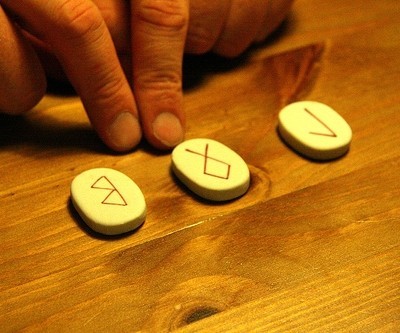Difference between revisions of "Template:POTD protected"
Jump to navigation
Jump to search
Occultwiki (talk | contribs) |
Occultwiki (talk | contribs) |
||
| (40 intermediate revisions by the same user not shown) | |||
| Line 1: | Line 1: | ||
{| role="presentation" style="margin:0 3px 3px; width:100%; text-align:left; background-color:transparent; border-collapse: collapse; " | {| role="presentation" style="margin:0 3px 3px; width:100%; text-align:left; background-color:transparent; border-collapse: collapse; " | ||
|style="padding:0 0.9em 0 0;" | [[File: | |style="padding:0 0.9em 0 0;" | [[File:Runes.jpg|300px|thumb|]] | ||
|style="padding:0 6px 0 0"| | |style="padding:0 6px 0 0"| | ||
'''[[ | A '''[[rune]]''' is a letter in a set of related alphabets known as runic alphabets native to the Germanic peoples. Runes were used to write Germanic languages (with some exceptions) before they adopted the Latin alphabet, and for specialised purposes thereafter. In addition to being a writing system, runes historically served purposes of [[ritual magic|magic]] and [[divination]] as a form of [[cleromancy]]. In the early 20th century, Germanic mysticism coined new forms of runic magic some of which were continued or developed further by contemporary adherents of Germanic [[paganism|Neopaganism]]. Modern systems of runic divination are based on Hermeticism, classical [[Occult]]ism, and the [[I Ching]]. | ||
<p><small>Photo credit: Nick Fraser</small></p> | |||
<p><small>Photo | |||
[[:Category:Images|'''(More Images)''']] | [[:Category:Images|'''(More Images)''']] | ||
<div class="potd-recent" style="text-align:right;"> | <div class="potd-recent" style="text-align:right;"> | ||
Latest revision as of 19:56, 8 September 2025
|
A rune is a letter in a set of related alphabets known as runic alphabets native to the Germanic peoples. Runes were used to write Germanic languages (with some exceptions) before they adopted the Latin alphabet, and for specialised purposes thereafter. In addition to being a writing system, runes historically served purposes of magic and divination as a form of cleromancy. In the early 20th century, Germanic mysticism coined new forms of runic magic some of which were continued or developed further by contemporary adherents of Germanic Neopaganism. Modern systems of runic divination are based on Hermeticism, classical Occultism, and the I Ching.
Photo credit: Nick Fraser |
